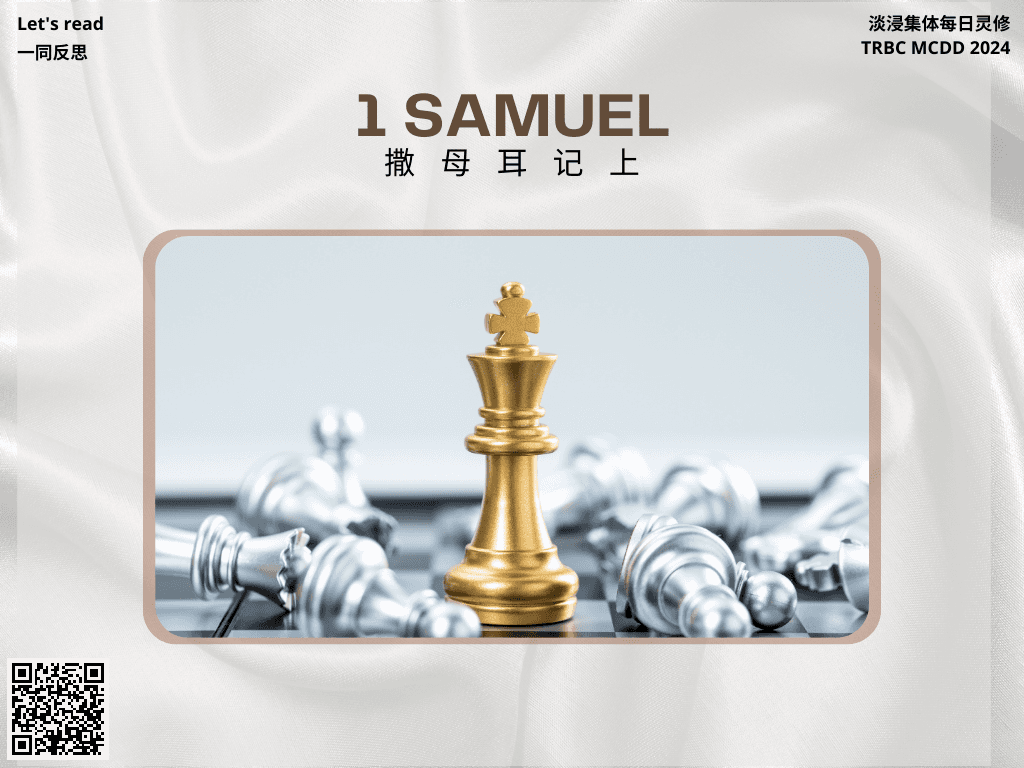Last 5 Days

Chasing False Saviours

Click here to read Scripture
The tension between Saul and David has been building up because the writer wants to contrast the differences between the kings: Saul has rejected God and so God has rejected Saul; David, on the other hand, has committed himself to God and so God has committed Himself to David. And we are shown the difference between the two kings here in chapter 22 of 1 Samuel.
At the beginning of the chapter, David is warned by God through the prophet, Gad, to flee to Judah to escape Saul. When the scene shifts to Saul, Saul is seated under a tamarisk tree on top of a hill, with a spear in his hand, surrounded by his men, stewing over David’s successes and imagining all kinds of conspiracies against himself, including his own son’s loyalty to David! One of Saul’s servants, Doeg the Edomite, fans the flames of Saul’s jealousies and paranoia, which trigger Saul’s summons to Ahimelech the priest to appear before him. When Ahimelech not only defends David as blameless but also loyal to Saul, Saul imagines them all to be equally guilty of treason and orders his men to put to death all the priests and their families, too. However, none of his men would do it except the Edomite. In fact, at Saul’s command, the Edomite executes the entire city of Nob for siding with David against the king!
Don’t miss the significance of this chapter:
(1) David, who physically has very little that would suggest that he is a king (he even had to be given the Bread of the Presence by Ahimelech the priest in the previous chapter because he had no food) is contrasted with Saul, who has set himself up with the appearance of kingship – he is seated while all his servants around him are standing, atop a hill under a tamarisk tree (a tree often associated with the worship of YHWH and the tops of high places are linked to places of meeting with God), and he holds a spear (representing authority). Yet, for all the way things appear, God is with David, but God is not with Saul.
(2) When Saul orders the total genocide against all the priests and their families, it is a double indictment against Saul. Not only is such a mass execution (Heb. חרםherem) a war tactic reserved for use against non-Israelites, but this is also a murder of God’s anointed priests. It is an unspeakable crime! Saul goes from being God’s king – a person that is supposed to provide life and blessing to his people – to being a king just like that of any other nation in prophetic self-fulfillment of what the Israelites demanded of Samuel in 1 Samuel 8:5, “now appoint for us a king to judge like all the nations.” Oh, how the Israelites must have lamented their words to Samuel that day!
(3) In contrast, David is God’s anointed king who provides blessing and safety. Abiathar, one of the sons of Ahimelech and himself a priest, escapes the pogrom at Nob and flees to David, who is shown to be a messiah-like figure and who says to Abiathar, “Stay with me. Don’t be afraid, for the one who wants to take my life wants to take your life. You will be safe with me” (1 Sam 22:23 ESV). David is a life-giver while Saul is a life-taker.
The contrast between Saul and David is meant to show us the contrast between a false saviour and a true saviour. Following a false saviour will lead to dead and destruction. And false saviours come in many, many, many guises – I will highlight just three:
1. Self : We are selfish, self-centered people at heart. Selflessness is not a natural state in our broken world. In his book, Eat This Book, Eugene Peterson talks about how we have substituted the Trinity with the “Replacement Trinity” of my wants, my needs, and my desires. The world’s lies about finding meaning in life have gone from “all you need to be is a good person” in my generation to “all you need to be is to be true to yourself” in the present generation. Self is now paramount. If we give in to this lie, then we become our own gods and we are trusting in a false saviour.
2. Money : Deep inside us, a small part of us (maybe bigger than we care to admit), we think that money can solve anything if we only had enough of it and we end up treating money like a god. But money can’t save – only God can. If we start measuring our worth and our security by the size of our bank accounts, we are trusting in a false saviour.
3. Relationships : God made us for relationship – after all, we are to love God and love our neighbour. But as broken people, we often have a distorted view of relationships and allow our relationships with others to dictate how we live our lives, rather than giving relationships their proper place and perspective before God. When we become so consumed by our relationships, we may make them into idols and we may be trusting in a false saviour.
What false saviour is God pointing out to you today? Will you choose to stand with Christ as Ahimelech chose to stand with David, even though it might cost you everything – even your very life?
Reflection & Prayer : Abba Lord, Inspire in us the same courage and conviction demonstrated by Ahimelech to choose to be faithful to Your Servant King when we are faced with danger and adversity. You are our great shield, defender, and provider. In You and You alone we place our hope, even our very lives ! In Jesus' name, we pray. Amen.
